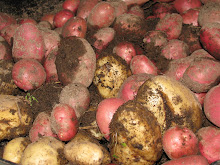by National Farmer's Union
HOWE ISLAND, Ont—A recent front-page report by the British newspaper, The Guardian, is
the latest reason why Canada needs a top-level analysis of global hydrocarbon supplies.
The Guardian’s November 9th story is headlined “Key oil figures were distorted by US
pressure, says whistleblower.” The story focuses on the world’s top energy monitoring and
forecasting body, the International Energy Agency (IEA). The Guardian quotes senior IEA
officials and explains that the US encouraged the IEA to underplay the rate of decline from
existing oil fields while overplaying the chances of finding new reserves. The IEA insiders
dismiss projections of significant oil production increase as “nonsense” and warn that “the
world is much closer to running out of oil than official estimates admit.” These revelations
call into question the integrity of the world’s leading authority of petroleum reserves. Industry
analysts and governments, including Canada’s, rely heavily on IEA data to formulate policy
and business decisions.
The November 9, 2009 Guardian report is available at:
http://www.energybulletin.net/node/50659
The NFU believes that there are several reasons why an independent Canadian inquiry is
needed:
1. The Guardian report is only the most recent document to question the reliability of
the IEA’s global oil supply projections;
2. There are widely acknowledged trends pointing to future oil supply problems—trends
which Canada’s politicians and our lead energy ministry are failing to acknowledge;
and
3. Energy, food, climate, water, and our economy are interlinked, so miscalculations
regarding energy supplies and prices will have dramatic effects on every aspect of
Canadian society.
“As a organization of family farmers, the NFU is acutely aware that food is tightly linked to
energy, both locally and globally. Farmers use diesel fuel to run tractors and trucks. We
require natural gas to make critical nitrogen fertilizer. Canadians depend on secure supplies
of affordable energy to import and export food, to process and package it, and to refrigerate
it. Shortage or volatility on global energy markets will rapidly turn into shortage and
instability in food markets,” said NFU energy security analyst Rick Munroe. Munroe has
recently commented on energy issues in various media venues, including CBC Radio’s
political affairs program, “The House.”
Over the past three years, the NFU has written to the government of Canada (including its
lead energy department, Natural Resources Canada), calling for a formal examination of
energy security concerns. NRCan has indicated that it sees no need for such research and
continues to actively deny that there could be any problems with Canadian or global oil
supplies.
NRCan regularly states that “there is no imminent peak oil challenge” and that “Canada’s oil
supply is secure for about 200 years.”
The NFU believes that both NRCan statements are false and that their issuance is
misleading and ultimately dangerous. In dismissing concerns regarding a global peak oil
challenge, NRCan is at odds with a growing number of experts. For example, a landmark
report conducted for the United State Department of Energy (DOE) begins with this sobering
statement, “The peaking of world oil production presents the U.S. and the world with an
unprecedented risk management problem” (Hirsch Report, 2005, p. 4,
http://en.wikipedia.org/wiki/Hirsch_report )
Because of the critical links between agri-food and energy, the NFU will continue to press the
Canadian government to conduct a full and independent examination of the implications of
looming fossil fuel supply insecurity.
For more information, please contact:
Rick Munroe, NFU member and energy security analyst: (613) 546-6009 or rmj@kos.net
Darrin Qualman, NFU Director of Research: (306) 652-9465
National Office
2717 Wentz Ave.
Saskatoon, Sask., S7K 4B6
Tel (306) 652-9465
Fax (306) 664-6226
Subscribe to:
Post Comments (Atom)

No comments:
Post a Comment